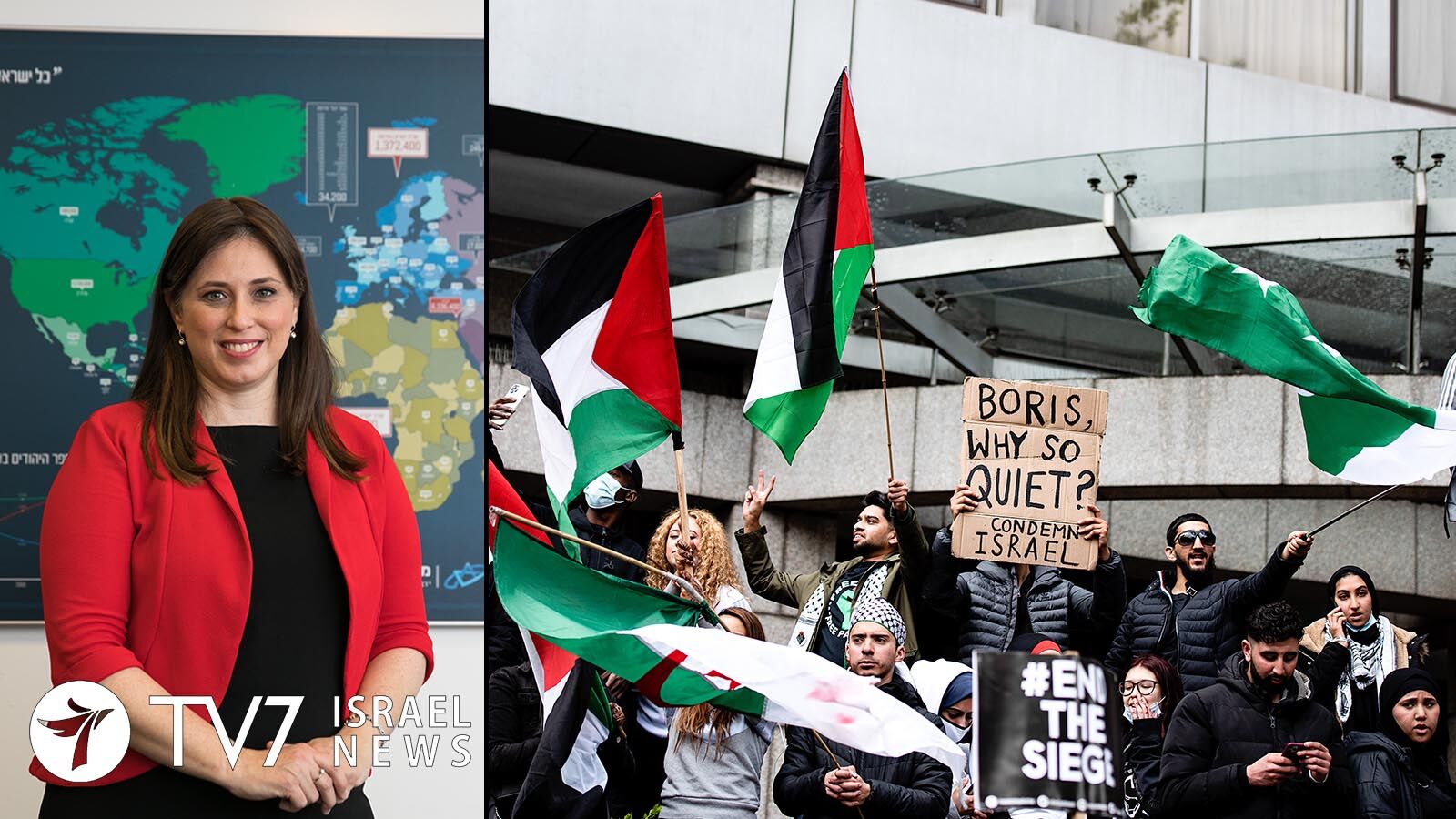Government ministers have rejected what they described as anti-Semitic treatment of Israeli Ambassador to the United Kingdom Tzipi Hotovely by pro-Palestinian protesters in London on Tuesday.
By Erin Viner
There has been widespread outcry following harassment of Israel Ambassador Hotovely during a debate entitled “Israel’s Perspective: A New Era in the Middle East” organized by a student society at the London School of Economics (LSE).
Even prior to the event, the LSE for Palestine activist group had lobbied against Hotovely’s participation. When organizers refused to cancel her attendance, the group organized a demonstration outside the university in protest. Other members walked out of the hall when she took the stage while others remained behind to heckle her.
Before assuming the ambassadorship, Likud Member of Knesset Hotovely served as Deputy Minister of Foreign Affairs, Minister of Diaspora Affairs, Minister of Settlement Affairs in previous Israeli governments led by former Prime Minister Benjamin Netanyahu. The former politician has expressed views against Palestinian statehood and in support of Jewish settlements in Judea and Samaria.
Hotovely answered questions from the audience during the 90-minute event and departed as scheduled but was forced to be swiftly escorted her into her vehicle as a security detail held back a raucous outside mob heard jeering, booing and shouting accusations that she contributed “to the material oppression of Palestinians.”
“The violence we witnessed when the ambassador left the premises after the talk will not deter Israeli diplomats from engaging in meaningful dialogue with all parts of British society,” read a statement released by the Israeli Embassy, saying that the demonstration had been organized “by Palestinian and Islamic societies across London universities”
British media reported that the protesters specifically targeted Hotovely. Despite the heavy presence of London’s Metropolitan Police there were no arrests.
British politicians across the political spectrum widely condemned the incident.
UK Home Secretary Priti Patel said she was “disgusted by the treatment” endured by the Israeli envoy. “Anti-Semitism has no place in our universities or our country,” Patel wrote on Twitter, adding that, “The police have my full backing in investigating this appalling incident.”
“I will continue to do everything possible to keep the Jewish community safe from intimidation, harassment & abuse,” Minister Patel vowed.
UK Foreign Secretary Liz Truss said “We in Britain believe in freedom of speech” and that “the attempt to silence” Hotovely “was unacceptable.”
Britain’s Middle East Minister James Cleverly said that while “We value open debate and peaceful protest,” that “the aggressive and threatening behaviour directed at Israeli ambassador Hotovely last night was unacceptable.”
“This is deeply disturbing. I am so sorry Ambassador Hotovely,” Education Secretary Nadhim Zahawi wrote on Twitter, acknowledging that Jewish students at LSE would have been “deeply shaken.”
“Freedom of speech is a fundamental right and any attempt to silence or intimidate those we disagree with should never be tolerated,” commented Foreign Affairs Spokeswoman for the UK’s Opposition Labor Party Lisa Nandy, saying “There is no excuse for this kind of behavior.”
The London School of Economics said that “intimidation or threats of violence are completely unacceptable,” and promised to review the “processes around such events.” A LSE spokesperson insisted, “Students, staff and visitors are strongly encouraged to discuss and debate the most pressing issues around the world, but this must be in a mutually respectful manner. “
Lawmakers belonging to the Conservative party headed by UK Prime Minister Boris Johnson say they intend to introduce new legislation to safeguard freedom of speech and prevent what they referred to as the “unacceptable silencing and censoring” witnessed on university campuses recently.
Hotovely remained undeterred by the harassment, saying shortly after the incident that “We will not give in to thuggery and violence” and that “the State of Israel will send its representatives to every stage.”
A short time later she expressed deep gratitude for the UK’s response on Twitter.
“I’m thankful for all the support I have received from the British government, many friends and partners,” she wrote. “I had an excellent event at #LSE,” she added, stressing that she “will not be intimidated” while pledging to “continue to share the Israeli story and hold open dialogue with all parts of British society.”
It is interesting to note that the head of the Palestinian mission to the UK, Husam Zomlot, who was scheduled to speak at an LSE debating society today, but withdrew following the Hotovely incident.
Zomlot reportedly said he would only speak “when there is a healthier environment,” said a LSE statement cited by The Guardian paper.
“We received a phone call from the Palestinian mission where the ambassador asked us to reschedule since he ‘wishes to return to his alma matter [the LSE],” said the society, while acknowledging that the cancellation “was not a decision made by the LSE, LSE Students Union or the LSE SU Debate Society.”
